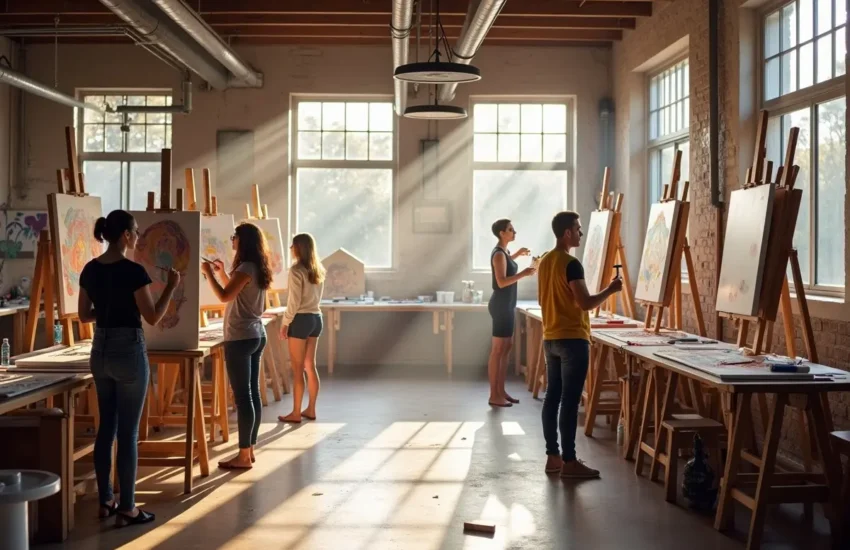First Impressions Matter: Making That First Date Memorable
Your brain makes snap judgments about someone’s attractiveness and trustworthiness in one-tenth of a second. Princeton University psychologist Alex Todorov discovered through extensive research that people form these intuitions so rapidly that conscious reasoning rarely influences the initial reaction. This biological reality shapes how first dates unfold before you’ve even said hello.

The Science Behind Those Split-Second Judgments
Research from Princeton psychologists Janine Willis and Alexander Todorov reveals that longer exposure to someone’s face doesn’t substantially change the first impression you formed in milliseconds.
The brain processes facial features and body language instantly, with appearance accounting for approximately 55 percent of initial impressions according to surveys of over 2,000 Americans. Another finding from the same research indicates that 69 percent of participants formed their first impression before the other person spoke.
These automatic responses happen because human brains evolved to make quick assessments about potential threats and opportunities. While you can overcome these initial judgments through extended interaction, that first moment creates a baseline that influences everything that follows. Todorov notes that as time passes and you get to know someone, you develop a more complete understanding of them, yet trustworthiness remains the trait people assess most quickly and accurately.
When Location Sets the Stage for Connection
The setting you choose for a first date plays a bigger role than most people realize in shaping those initial impressions. While some prefer casual coffee shops or neighborhood bars, others gravitate toward luxury date ideas like rooftop restaurants with skyline views, private wine tastings, or sunset sailing excursions.
The environment you select communicates something about your personality and what you value, making the choice of venue almost as important as the conversation itself.
Research shows that shared activities create stronger bonds than passive settings where you’re sitting across from each other.
Active dates like cooking classes, art gallery tours, or even arcade games give you something to focus on together, reducing the pressure while creating natural conversation starters. The key lies in choosing a location that feels comfortable for both people while still offering something memorable that sets this particular evening apart from routine social interactions.
Compatibility Beats Popularity Every Time
A comprehensive study from UC Davis and the University of Toronto analyzed 559 participants across more than 6,600 speed dates and found something surprising about romantic attraction. Alexander Baxter, a UC Davis doctoral student in psychology who co-authored the research published in the Proceedings of the National Academy of Sciences, discovered that compatibility matters more than general appeal when forming romantic connections.
The researchers tracked participants for three months after speed dating events to measure actual dating outcomes. Their statistical model tested three factors: selectivity, general appeal, and compatibility.
While they expected general attractiveness to dominate first impressions, the data showed that partner compatibility and relationship effects were the strongest predictors of later romantic interest and actual dates.
The Authenticity Factor Changes Everything
Modern dating has moved toward embracing quirks and oddities rather than hiding them. Plenty of Fish surveyed nearly 6,000 U.S. members aged 18 and older in August 2024 and found that 39 percent of singles have connected with someone over shared eccentricities or unusual interests, a phenomenon they call Freak Matching. Rachel DeAlto, dating expert at Plenty of Fish, sees this as part of people being more genuine about who they are rather than presenting a polished facade.
The same survey revealed that 33 percent of singles fantasize about romantic plots from media becoming their reality, with 40 percent of women admitting to this tendency. This openness about personal preferences and fantasies represents a departure from traditional dating advice that emphasized playing it cool or mysterious.
Common Pitfalls That Kill Chemistry
One behavior that derails first dates happens so frequently it has earned its own term: yap-trapping. According to the Plenty of Fish survey, 49 percent of singles have sat through dates in which the other person monopolized the conversation, asking no questions and showing no interest in their date’s thoughts. DeAlto suggests giving people some leeway with this behavior, since nerves often lead people to talk excessively or fear silence in conversation.
Confidence plays a major role in shaping impressions. The study of 2,000 Americans found that 83 percent felt more positive about someone who appeared self-assured. This doesn’t mean arrogance or bravado, but rather comfort with oneself and the situation at hand.
Building Genuine Connection Beyond First Impressions
While initial reactions happen automatically, what follows depends on conscious choices. Self-awareness becomes essential for dating success, according to DeAlto, who notes that gut feelings can stem from superficial reactions or fear of vulnerability. Understanding your own patterns and biases helps you make better decisions about who deserves a second chance.
The UC Davis research demonstrates that people can grow in love when given the opportunity. Following participants over months showed that the initial spark doesn’t always predict relationship success, and sometimes connections develop gradually through repeated interaction and deepening familiarity.
Creating memorable first dates requires balancing authenticity with effort, choosing settings that facilitate connection, and recognizing that while first impressions form quickly, they don’t determine everything. The goal isn’t perfection but rather presenting yourself honestly while remaining open to discovering who sits across from you.


